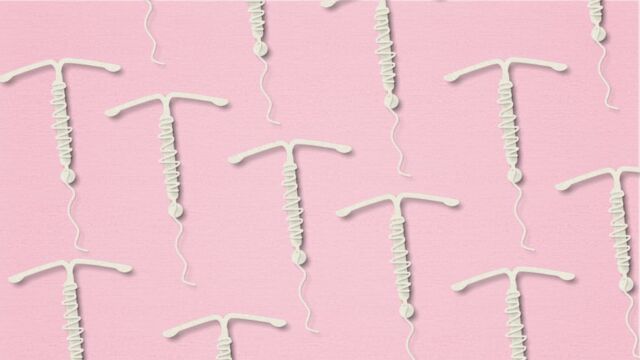The NHS website describes IUD insertion as ‘uncomfortable’, but many people across the UK have revealed harrowing stories of excruciating pain, sparking a petition demanding better pain relief for IUD insertion and removal.
Discover our latest podcast
‘Without explaining the real potential pain, how can consent truly be given?’
The petition launched by Lucy Cohen details the sometimes traumatic experiences of IUD insertion. Cohen quoted a previous petition of theirs stating:
Almost 1500 people have so far shared their experiences with me. On a pain rating scale of 0-10, 43 per cent of respondents rated their pain as a 7 or higher.
The NHS website currently reads: ‘having an IUD fitted can be uncomfortable, and some people might find it painful, but you can have a local anaesthetic to help. Discuss this with a GP or nurse beforehand.’
Let the person fitting your IUD know if you feel any pain or discomfort while you are having it fitted. You can ask to stop at any time. You can also take painkillers after having an IUD fitted if you need to.
However, Lucy has described that painkillers and local anaesthetic aren’t enough and that patients can’t truly give consent if they don’t have a realistic idea of the pain involved. The petition currently includes a list of goals such as ‘better expectation management of what the insertion and removal of an IUD entails.’
Lucy is also championing additional pain relief such as ‘gas/air sedation and muscle relaxants’ to become options for IUDs.
Not everyone will choose to have additional pain relief, but I strongly feel that for those who want it, it should be administered - and that real consent can only be given once all risks, including that of extreme pain, have been explained.
When the petition reached 10,000 signatures, it will be addressed by the government and considered for debate. Lucy is not so far off the target signature count, with over 7,000 people signing in agreeance.
Residents have also been commenting with their own IUD experiences, with many stating that healthcare professionals didn’t take their pain seriously. One person wrote:
I nearly passed out from the pain of mine. Made it back to the car park before I collapsed. Managed to call my husband to come and get me. He took me back in and felt like I was being a drama queen as everyone was acting like it's so rare and I was told some women 'react' like this. I only had it to reduce my crippling period pains, (which I still have and which have also never been taken seriously).
What is an IUD?
An IUD, otherwise known as anintrauterine deviceor ‘the coil’, is a small plastic and copper T-shaped device which can be inserted into the uterus to prevent pregnancy. IUDs work by releasing copper into the uterus, changing the qualities of the cervical mucus to prevent sperm from reaching the egg and even preventing the egg from implanting in the uterine wall.
The IUD is classed as 99% effective with options that either five or ten years. But, unlike prophylactics such as condoms, the IUD cannot provide protection against STDs.
One of the main benefits of an IUD is that it doesn’t trigger any hormonal side effects such as acne or headaches, which are common with other forms of birth control. There is also no evidence that supports IUD as a contributor to weight gain or cancer.
If you think that an IUD could be right for you, then it’s best to check with your doctor, but make sure to ask about the pain too!















